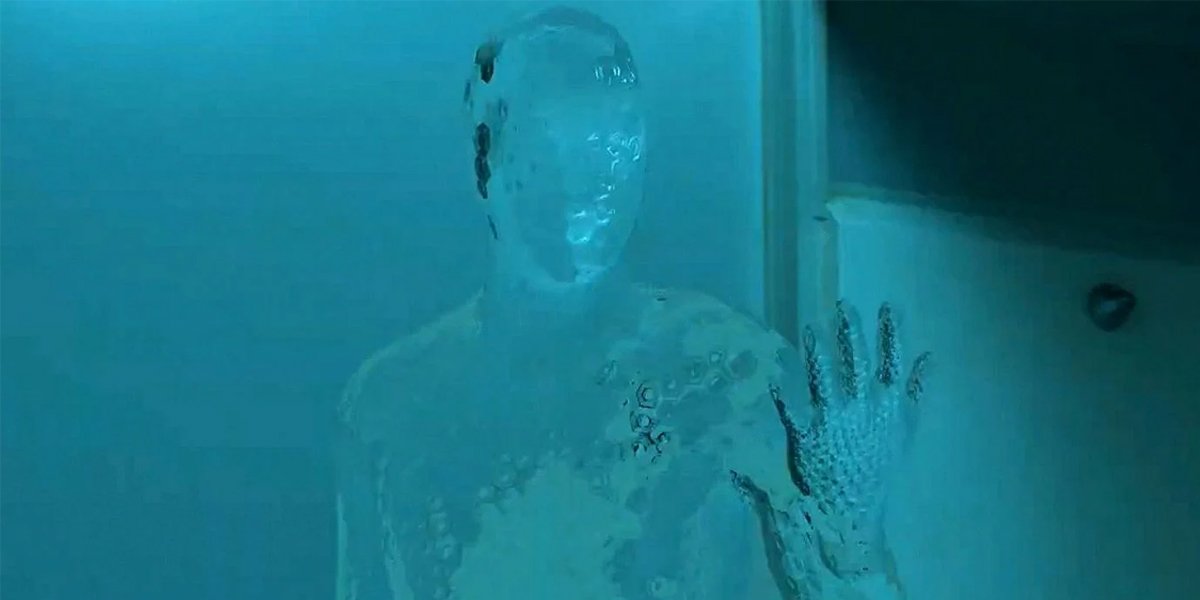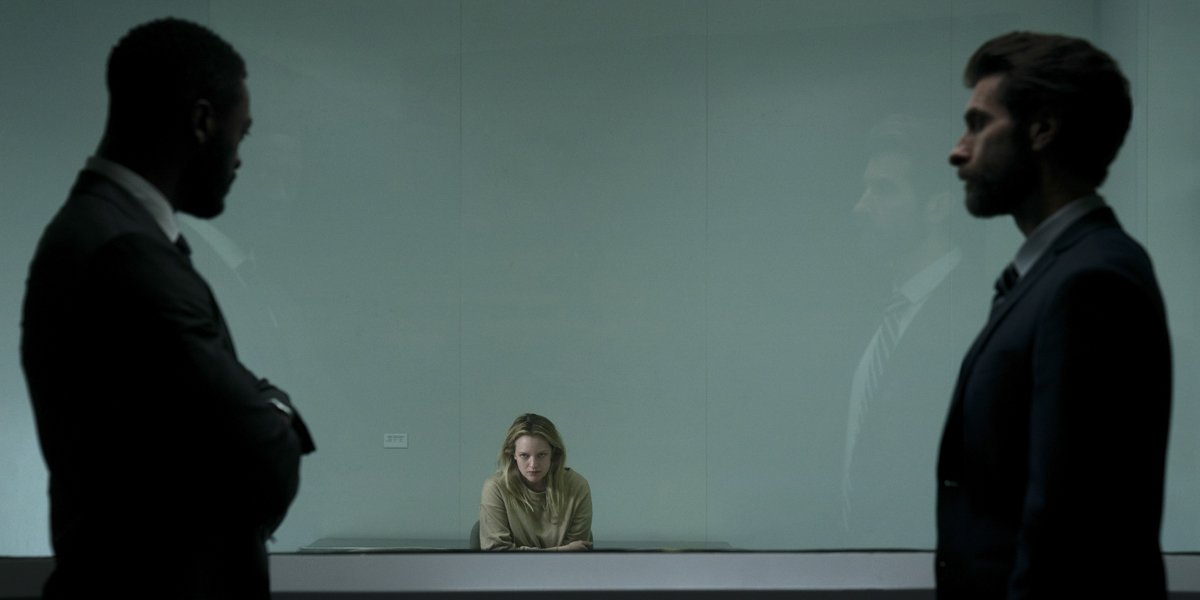How The Invisible Man Devised Adrian Griffin’s Special Suit

Leigh Whannell’s The Invisible Man was designed as a through-and-through modernization of the Universal Classic Monster, and that’s seen through the film not only via the zeitgeist-fueled plot, but also in the design and story of the titular villain. While the original H.G. Wells novel and James Whale-directed adaption famously went the serum route – utilizing a chemical that would make a person invisible, but also drive them insane – the 2020 version opted for a new take, and delivered a fantastic idea by having the already-psychotic Adrian Griffin (Oliver Jackson-Cohen) invent an advanced suit that would create the desired illusion.
The approach fascinated me when I had the chance to see the film on the big screen back in February (remember seeing movies on the big screen?), so when I had the opportunity to interview Leigh Whannell and producer Jason Blum last week in advance of the movie’s home video release I felt compelled to ask him about it. To learn about the writer/director’s approach to the invisible suit in The Invisible Man, hit play on the video below.
In the new version of The Invisible Man, Adrian Griffin isn’t introduced as a chemist, but instead a genius in the field of optics. His breakthroughs have made him a wealthy and powerful man, but he keeps his greatest invention to himself. While the technology is never specifically spelled out in the film, the idea is that Adrian has created a suit that is entirely covered in a series of cameras and projectors that work in tandem simultaneously. The former capture images of the world around him, and the latter hides his form in a camouflage made of those images.
Going back to the start of the writing the script, Leigh Whannell explained that he didn’t precisely know what he wanted to do with the invisibility process, but he did know what he didn’t want to do. Rather than follow in the tradition of the original Invisible Man or Paul Verhoeven’s Hollow Man, the writer/director knew that he didn’t want to go the chemical route, and instead knew that technology was the way to go:
I didn't exactly know when I started writing what the invisibility would be yet, but I knew I wanted it to be something based in tech. I didn't want it to be the potion, or the serum, you know – the serum that you inject. I was like, 'No serums, no potions.' And so I just started looking into ways that invisibility could be achieved using tech and landed on the suit.
What he ultimately created is fantastic for three reasons. First, it’s a logical design, and it doesn’t require the audience to make a huge leap in believing its functionality. Secondly, it looks incredibly cool, particularly when Elisabeth Moss’ Cecilia exposes its golf ball-like texture with the can of paint. Thirdly, and most importantly, it’s a case where form follows function, and you can understand how it works without having a character explain it with a hefty exposition dump.
Following up on Leigh Whannell’s answer, I specifically highlighted that last attribute, and in addition to agreeing with the sentiment, the writer/director expressed a bit of confusion when it came to film critics who didn’t quite get it:
I thought it was kind of self-explanatory. I've seen a lot of reviews saying like, 'Uh, well how does this thing work?' And I'm like, well, 'It's essentially all cameras.' The whole thing is made out of cameras and they project images at the same time as it’s recording images. There's no big speech. It's funny, there was no real opportunity to have someone do that, and if you did shove it in there probably would have been a bit hackneyed. So I just tried to let the visuals tell the story.
It’s an approach that works, and The Invisible Man is definitely made better by the fact that it doesn’t feature a scene where Adrian menacingly tells Cecilia all about his special invention and how it works. To borrow Leigh Whannell’s word, not only would that have been hackneyed, but it also would have done a super effective job trampling pacing and tension – regardless of where it would have appeared.
CINEMABLEND NEWSLETTER
Your Daily Blend of Entertainment News
The invisibility suit is one of many excellent ideas employed by an excellent movie, and fans everywhere can now enjoy the film ad infinitum in the comforts of their own home. While The Invisible Man has been available on digital for a few weeks now, the film is now also out on 4K, Blu-ray, and DVD.

Eric Eisenberg is the Assistant Managing Editor at CinemaBlend. After graduating Boston University and earning a bachelor’s degree in journalism, he took a part-time job as a staff writer for CinemaBlend, and after six months was offered the opportunity to move to Los Angeles and take on a newly created West Coast Editor position. Over a decade later, he's continuing to advance his interests and expertise. In addition to conducting filmmaker interviews and contributing to the news and feature content of the site, Eric also oversees the Movie Reviews section, writes the the weekend box office report (published Sundays), and is the site's resident Stephen King expert. He has two King-related columns.










